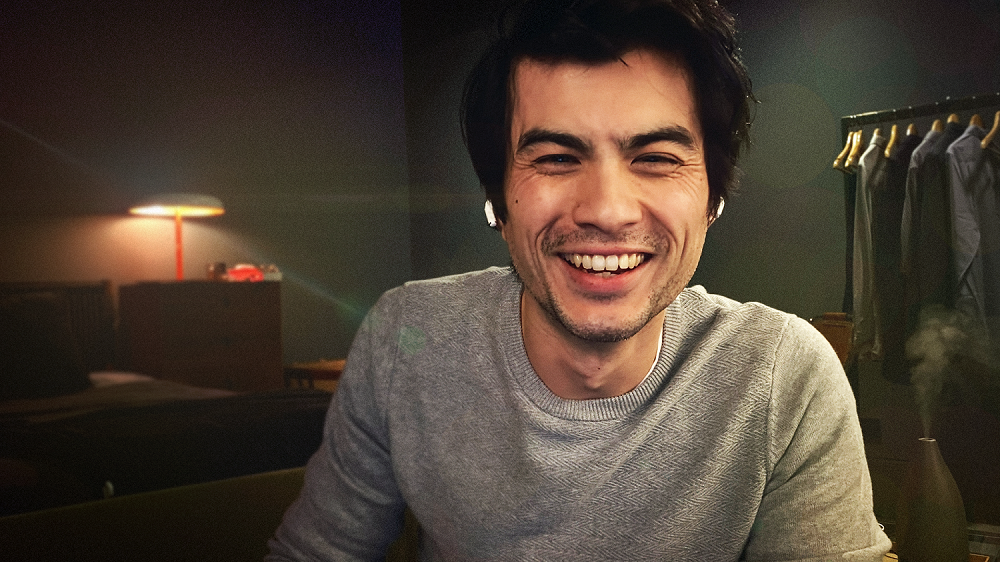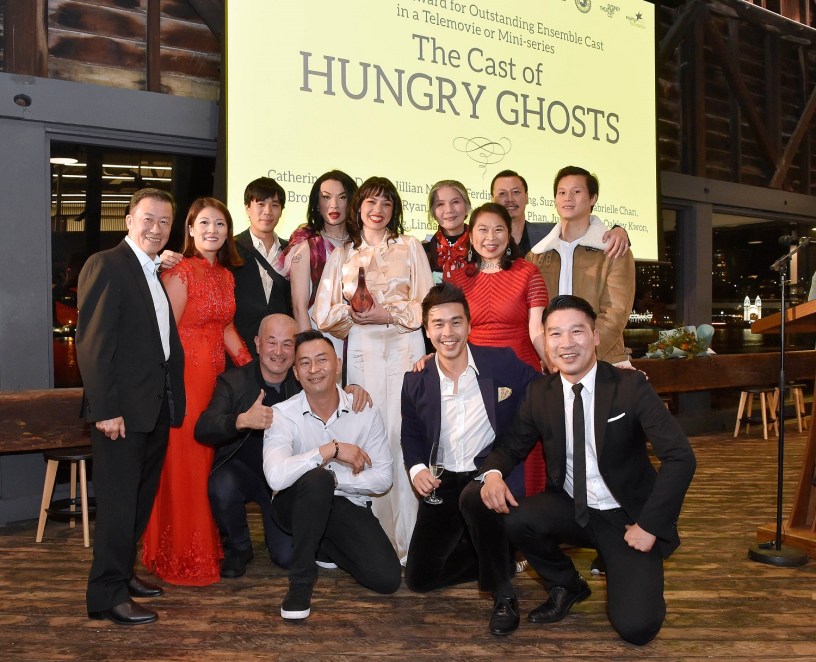The Australian screen industry is experiencing a boom, with Australia being seen as an affordable and safe place to film. This presents a distinct opportunity, not just for the Australian economy, but for modernising an industry ripe for change that can better meet the needs of contemporary audiences moving forward.
Although it is great to have all these international productions coming to Australia, we must also strive to protect Australian content and the unique value proposition that our productions bring to the global stage.
“The government is providing a whole lot of money for film and television at the moment but it’s principally for the Hollywood productions, and I welcome the jobs that come with that, but if they can pay for Hollywood stories to be told here, they can sure as hell make sure your stories are funded too,” Shadow Minister for the Arts Tony Burke told the audience at the Equity Ensemble Awards in Sydney on Sunday.

There is a clear appetite from key industry players to capitalise on the boom to create sustainable pathways for new and emerging Australian screen professionals – to not only meet the current demand, but also build an Australian brand that is exceptional and compelling in a global market. We can only do this if we nurture the next generation of storytellers, actors and filmmakers.
Needless to say, it is imperative to uplift diversity and inclusion in front of and behind the camera, in the writers room, in production teams, and in casting, because it is the traditionally under-represented who are the new and emerging, whose voices offer the fresh new stories that audiences are craving.
In 2021, we have seen numerous screen agencies and broadcasters across Australia announce diversity and inclusion initiatives aimed at supporting better diversity in our industry.
Screen Queensland’s Equity and Diversity Taskforce, the ABC’s diversity and inclusion commissioning guidelines, SBS and NITV’s Curious Australia, and the Equity Foundation’s Screen Diversity Showcase 2021, are a sample of the types of initiatives being pursued by prominent players across the Australian film and television landscape.
As Screen Queensland chief creative officer Jo Dillon emphasises, as opportunity knocks, the industry needs to ensure “no one is left behind”.
“[The industry must be mindful] that we don’t widen what is already an existing gap, by allowing ourselves to move forward and capitalise on a boom without ensuring that we bring everybody with us.”
Dillon notes that diversity is important not just as a hallmark of a civilised society, but because it makes for better storytelling, and because this is what the market wants.
“Audiences are saying we really want diverse content and stories that are about people who look like us, or don’t look like us, or think like us or don’t think like us, that really is a representation of all kinds of world views and cultures and experiences,” she says.
This trend is furthered by growing accolades for diverse actors and filmmakers, locally and globally.

The Equity Ensemble Awards ceremony, which recognises outstanding performances by ensembles in Australian productions, honoured the performances of the highly diverse casts of Retrograde, The Family Law, Mystery Road S2, The Heights, Hungry Ghosts and The Hunting. The stand-out theme of the night was diversity, with acceptance speeches paying deep respect to our First Nations.
In accepting the award on behalf of the winning cast of Hungry Ghosts, Lap Phan delivered his speech in Vietnamese, dedicating the award to the Vietnamese immigrants whose stories were told with great care and passion by Asian-Australian director, Shawn Seet, and the entire cast and crew of the production.
In the audience was my mother, a Vietnamese boat person whose story was represented in the character that I played in Hungry Ghosts, and who like many of her Vietnamese peers have watched and re-watched the show many times. This is the impact diversity on our screens can have.

In 2020, Parasite became the first non-English language film to win Best Picture at the Academy Awards. In 2021, Chloe Zhao became the first woman of colour to win the Best Director award in the history of the Oscars. It is obvious that the winds of change are blowing strong.
Anthony Brandon Wong, multi-award winning, Asian-Australian, openly gay actor, and three-time winner of the Equity Ensemble Awards, believes this current wave of change is not just another blip.
“In the 35 plus years I’ve been an actor there has been an evolution of how diversity is represented on our screens and stages. There was an early chapter in our history where ethnic representation was putting an Asian or Middle Eastern actor in a 50-worder role, which might be very offensively stereotypical.
“Then we as an industry and as a society started to question that type of sometimes racist representation. We started to ask: Why can’t the gay man or the gay woman be the hero? Why can’t the Asian man in this show be sexual, romantic, the lover as opposed to the nerd, the geek, the scientist?
“Now, we have characters in shows like The Heights where the story isn’t necessarily hinged on their difference. We have shows where a series regular just happens to be gay, or trans, or Asian or African, and the story isn’t about them being gay, trans, Asian or African. I’ve seen massive changes in the way TV, film, theatre and media now express diversity and I’m delighted that it’s becoming increasingly normalised to have people from different backgrounds in all kinds of storytelling and cultural expression,” he says.

After 20 years in the industry, Vico Thai who plays Quang in Hungry Ghosts agrees there is now a significant shift being experienced in the industry. Increasingly, he observes roles are becoming available for all ethnicities, with no preference for any cultural type. Instead, producers are looking for characterisations that are a good fit for the story, regardless of cultural background, gender, sexual preference, or whether a person is able-bodied.
“What we are doing right now is creating inspiration for the next generation who can tell more diverse stories,” says Thai.
Max Brown, star of Retrograde says: “What I find really great about [Hungry Ghosts and Retrograde] winning these awards in these two categories of representation is that on the one hand, Hungry Ghosts is a very Asian, Vietnamese specific story about the history of the Vietnamese community in this country, which can only be told with Vietnamese voices.
“[On the other hand], Retrograde is a universal story. It is not specifically about how Pallavi [Sharda] is Indian-Australian, or that Esther [Hannaford] is an actor who lives with a disability. Those are an incidental or a natural part of the characters.
“It is really just a story about a group of friends navigating their relationships during COVID-19 and how they grow as people, and that’s a story that can be told universally by any cast, [but] it’s opened up that universal space to people [from diverse backgrounds].”

A casting director once told me that getting big name actors on a show is vital because they finance the production. It is not that the actor themselves will fund the production, but that their attachment to it gives confidence to investors and executives that the show is likely to give them a return on their investment. This is the business side of show business. However, an executive producer once told me that no one can ever tell whether a show is going to sell or not. No one.
As an actor, writer and producer, or a member of the emerging generation of multi-disciplinary screen practitioners, I believe good content is key. Quality writing, outstanding performances by actors, and great storytelling by directors and editors trumps marketing or big names, any day.
Glamour without a good product may get the first wave of people through the door, but not sustain the interest. Only through honest and authentic marketing will the right audiences be drawn in, who turn into fans, and through their word of mouth and the network effect fuel greater viewership.
People love seeing themselves on screen, and they will pay to do so, repeatedly. There presently exists a huge economic opportunity to serve a largely untapped audience, the female, CALD, LGBTIQA+, and disabled audience. In other words, the typically under-represented.
The historical lack of diverse content on our screens has missed the opportunity to serve a highly liquid viewing audience, time and time again. Let’s not allow our industry to continue to leave this blind spot unchecked.
Phan, who played Dr Sang Tran in Hungry Ghosts, says: “Commercially, it makes sense to have your audience reflected on the screens. [T]he industry is at a nexus point where programs that ignore the diversity of its audience won’t enjoy longevity because it won’t be able to attract the modern viewer.”
With shows like Marvel Studio’s Black Panther and Crazy Rich Asians proving that diverse productions are profitable, perhaps the traditional economic narrative surrounding film and television is ready for change, also. If anything, the industry is lagging by its audience.
Oakley Kwon is an actor, writer and producer, who was among the cast of the Equity Ensemble Award-winning Hungry Ghosts (Matchbox Pictures/SBS). She is the director of Asian Food and Film, a Brisbane based cultural festival, and the chair of the Diversity Production Fund. To learn more, please subscribe to her newsletter here.



